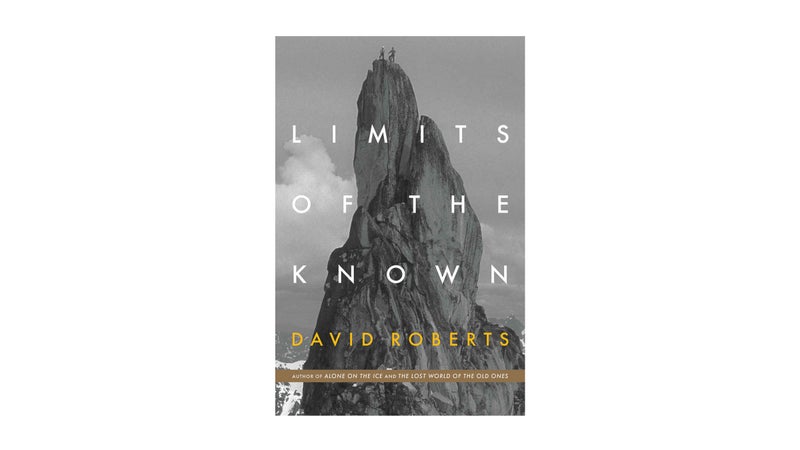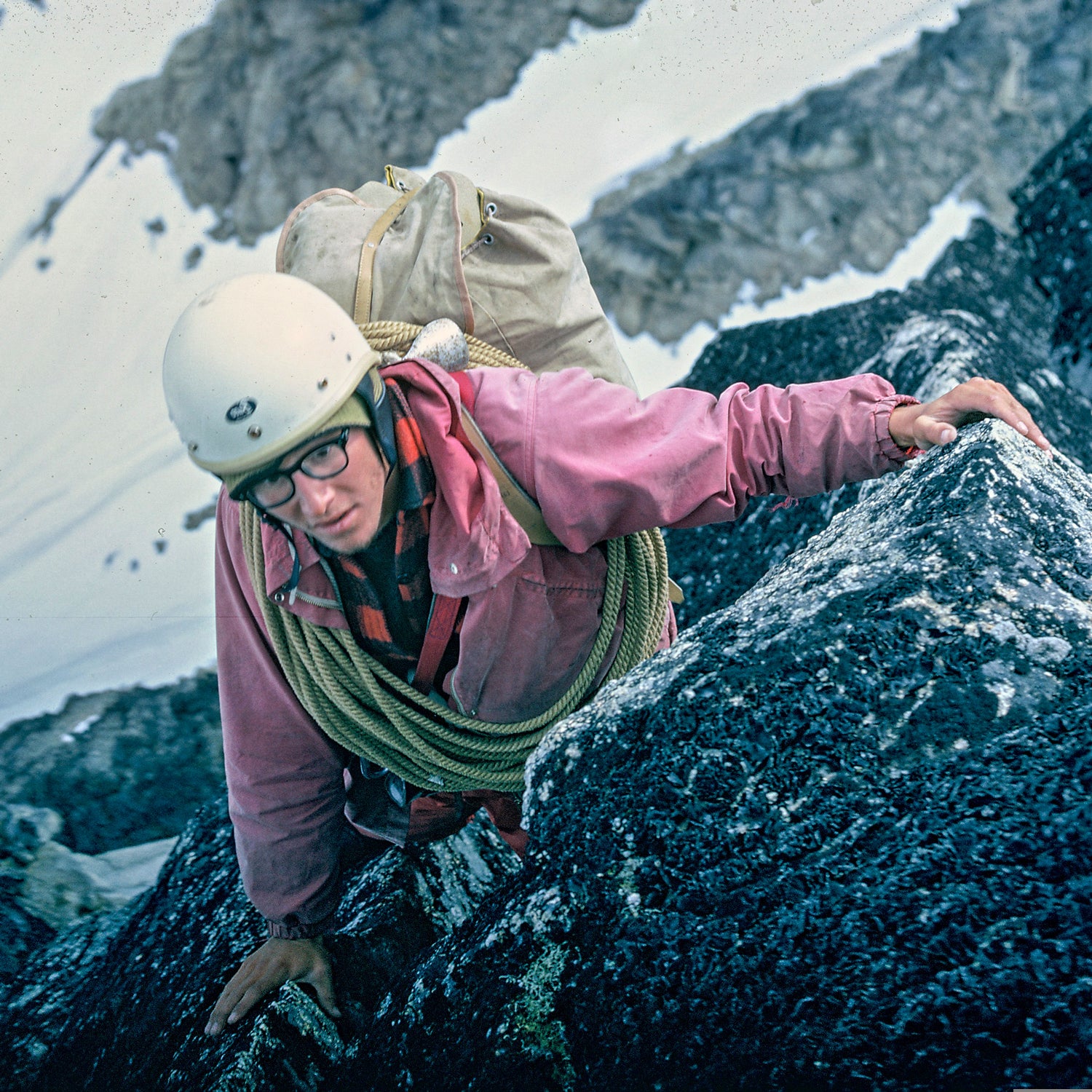When David Roberts first climbed in Alaska, in 1963, he felt what he describes as a “wistful sorrow” that he was unable to explore an unmapped region like the British explorer Eric Shipton had just a generation prior. “Every explorer thinks he was born too late,” Roberts told me over the phone from his home in Watertown, Massachusetts. Yet he still managed to summit unclimbed mountains in Alaska with the help of .
His stories about those early harrowing climbs, first ascents, and deaths of climbing partners launched his writing career. His first book, the mountaineering classic , focused on the death of Roberts’ climbing partner Ed Bernd during the descent of Mount Huntington in Alaska. It also asked the question: Is it worth it? Over the next 50 years, Roberts established himself as a prolific climbing and adventure writer with a compulsion for that same self-examination.
, released in February, continues the trend while addressing historical expeditions, why we go on them, our relationship with risk, and Roberts’ own history with his friends and wife. Questions of mortality are prevalent, but it’s a different kind of mortality, as he grapples with stage four throat cancer and reflects on his relationship with his wife, Sharon. “I might die in a year or two—I had to come to terms with that. I didn’t want to ignore the cancer, I wanted to write about it,” Roberts says. (Full disclosure: I met Roberts six years ago at an outdoor writer’s conference, and he has since become a good friend and mentor.)

Research for Roberts’ books typically involves expeditions and physical demands he could not take on with cancer. Limits of the Known was a book he could write while undergoing treatment. In his weakened state, Roberts hired a research assistant for the first time, wrote longhand, and dictated to his wife, who then “tirelessly typed away.” His illness also changed his perspective. “I thought in a way that I hadn’t before,” Roberts says. “What do all of these years of adventure and climbing and hiking and exploring add up to? What is it about? Not just for me, but what is the value of adventure in other people’s lives and in society?”
There is a lot history packed into this book in order to answer those questions, starting with Norwegian explorer Fridtjof Nansen, who, in 1893, got closer to the North Pole than anyone had before. (The title of Roberts’ book is a nod to Nansen and part of a quote from his book, .) Roberts also writes in-depth about Shipton and H.W. Tilman, pioneers of the light-and-fast alpine climbing style and early explorers of Pakistan’s Karakoram Range.
Though Roberts celebrates great explorers of our time through the current era, he also contrasts what he considers true adventure with what it has become today with the prevalence of cell- and satellite phones, radio, internet, rescue planes, and helicopters. He maintains that technology and the “machinery of communication” have adulterated exploration and adventure.
Writing about Henry Worsley’s much-lauded 2016 attempt to , Roberts notes that although the attempt was noble, Worsley was in “constant contact via radio and sat phone to a support team.” The team rescued Worsley when he collapsed 30 miles short of his goal; he died two days later in a hospital. “Yes, Worsley died in the effort to set a polar record. But compared to the paragons of the golden age of Antarctic exploration—Scott, Shackleton, Amundsen, Mawson, and their men—Worsley and his rivals in the modern polar game are not playing for keeps,” Roberts writes. These chapters are full of detail, easy to read, and ultimately thought-provoking: Why are so many of us attracted to risk and exploring the unknown?
But Roberts’ view of today’s state of adventure is more optimistic than it seems at first. “For years I’ve been a grumpy critic of things like guided trips on Everest that seize all the media attention—they are essentially bogus versions of adventure,” Roberts says. “I wanted to also make a case for the kinds of things that were going on that really are adventurous, like what Sam Meacham is doing in the cenotes in the Yucatan.” Cave diving, Roberts says, is in its golden age of exploration, even if the general masses have not taken notice.
As he tackles the big question of why we adventure, Roberts also posits that the idea that adventure leads to self-discovery is as overreaching as saying travel changes a person. Psychotherapy, Roberts writes, has been a better tool for understanding the why that so many of us go searching for. “We go off again and again on our voyages in quest of the undiscovered world because we can’t help it,” he says. “We cannot claim that it does anybody besides ourselves any good.”
The most personal chapter comes late in the book, when Roberts writes about the intimacy of his most significant climbing partners, from the late Don Jensen to his longstanding relationships with Matt Hale, Ed Ward, Jon Krakauer, and Greg Child. But his greatest life partnership is with his wife.
Roberts writes about their trips together in Alaska’s Brooks Range—Sharon carrying a 45-pound load and waiting at camp with a loaded rifle while he goes off to summit a peak. When Roberts went on expeditions without Sharon, he felt the weight of risk and was concerned about her worrying about him. Married for more than 50 years now, Roberts has not written in-depth about their relationship in other books. Again, it was the cancer diagnosis that changed his perspective, sharpening his appreciation for the love that they have.
“Post-cancer, I recognize that I craved that island of safety as longingly as she did, that as much as I thought I needed to flee from the oasis of domestic tranquility, its absence had left a hole in life. Love in its purest form had always terrified me,” Roberts writes.
Limits of the Known devotes its pages to where adventure has been and where it is going, but ultimately it is a book about Roberts’ greatest personal exploration. Sometimes the most terrifying adventures are the most rewarding after all. In grappling with his own inevitable mortality, Roberts says that in his last moments, he won’t be thinking of a mountain summit, but of Sharon.


